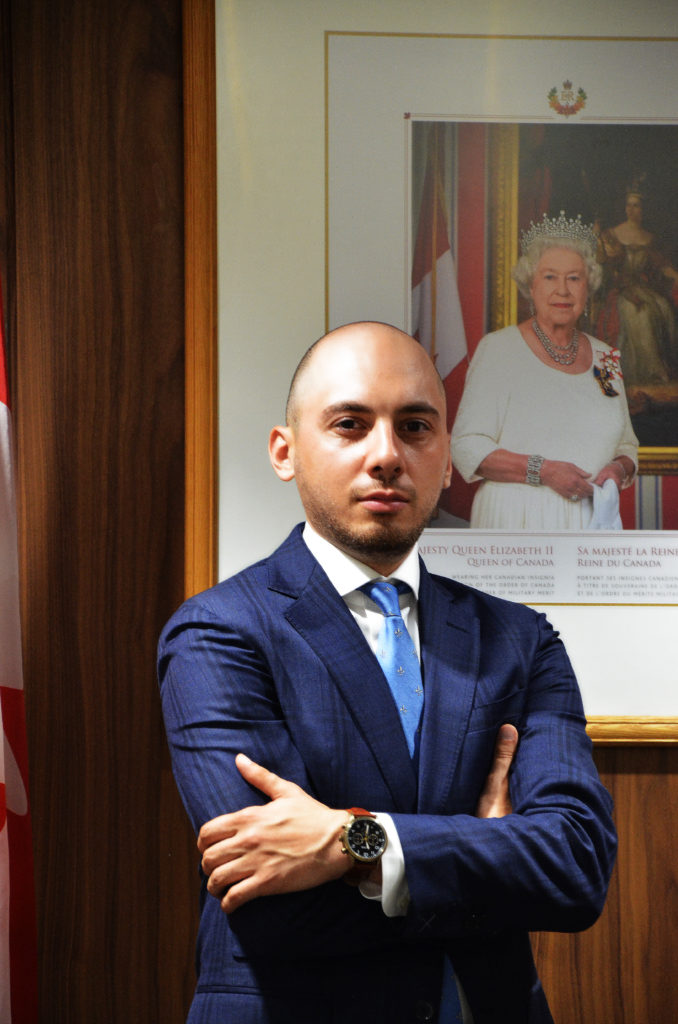Things Immigrants Have to Do to Settle in Canada
Find out how you could settle in Canada with your family as an immigrant
What do I need to do to settle in Canada as an immigrant?
Here are some of the things that immigrants need to do to settle in Canada:
-
Apply for a visa: Immigrants must apply for and receive a visa that allows them to enter Canada. The type of visa needed depends on the individual's circumstances, such as their intended length of stay, reason for visiting, and country of origin.
-
Pass a medical exam: Immigrants are required to undergo a medical examination to ensure that they do not have any medical conditions that could pose a risk to public health.
-
Obtain a police certificate: Immigrants are required to provide a police certificate from their country of origin and any other country they have lived in for more than six months to show that they do not have a criminal record.
-
Find a place to live: Immigrants must find a place to live, whether that is through renting or buying a home or apartment.
-
Get a job: Immigrants must find a job to support themselves and their families, and to meet the requirements of their visa.
-
Learn English or French: Immigrants must be able to communicate effectively in English or French, which are the two official languages of Canada. There are language classes available to help immigrants improve their language skills.
-
Apply for a social insurance number: Immigrants must apply for a social insurance number, which is required to work and receive government benefits.
-
Open a bank account: Immigrants should open a bank account to manage their finances and receive their salary.
-
Enroll in healthcare: Immigrants must enroll in the public healthcare system to receive medical services and treatments.
-
Connect with the community: Immigrants should try to connect with the local community, whether that is through volunteering, joining a club or organization, or attending cultural events.
These are just some of the many things that immigrants need to do to settle in Canada. Immigration requirements and procedures can vary depending on the individual's circumstances, so it is important to seek professional advice and guidance.
What are things immigrants have to do to settle in Toronto?
Here are some things immigrants need to do to settle in Toronto:
-
Obtain legal status: Immigrants must have legal status in Canada to settle in Toronto. This can be achieved by applying for and receiving a visa, or by being granted refugee status.
-
Find a place to live: Immigrants must find a place to live in Toronto. This can include renting or buying a home or apartment, or living in temporary accommodation while searching for permanent housing.
-
Get a job: Immigrants should try to find a job in Toronto to support themselves and their families. There are many resources available to help immigrants with job searching, including job fairs, employment centers, and online job boards.
-
Learn English: English is the most commonly spoken language in Toronto, so immigrants should try to learn English to communicate effectively with others. There are many language classes available to help immigrants improve their language skills.
-
Obtain a driver's license: If immigrants plan to drive in Toronto, they will need to obtain a driver's license. The process for obtaining a driver's license can vary depending on the individual's country of origin.
-
Enroll in healthcare: Immigrants must enroll in the public healthcare system in Ontario to receive medical services and treatments. This can be done through the Ontario Health Insurance Plan (OHIP).
-
Connect with the community: Immigrants should try to connect with the local community in Toronto, whether that is through volunteering, joining a club or organization, or attending cultural events. This can help immigrants feel more at home in their new city.
-
Understand the cost of living: The cost of living in Toronto can be high, so immigrants should be prepared for this and budget accordingly.
These are just some of the things that immigrants need to do to settle in Toronto. It is important to seek professional advice and guidance to ensure a smooth transition to life in Canada.
Start your Process Today by Completing the Online Assessment Form.

The cost of rent and household bills in Toronto can vary widely depending on the location, size of the apartment or house, and other factors. However, here are some approximate figures to give you an idea:
-
Rent: The average cost of rent for a one-bedroom apartment in Toronto is around CAD 2,200 per month, while a two-bedroom apartment can cost around CAD 3,000 per month. Of course, rent can be higher or lower depending on the location and other factors.
-
Utilities: The cost of utilities, such as electricity, gas, and water, can vary depending on the size of the household and usage. On average, a household in Toronto can expect to pay around CAD 150-200 per month for utilities.
-
Internet and Cable TV: The cost of internet and cable TV services can vary depending on the provider and package chosen. On average, a household in Toronto can expect to pay around CAD 100-150 per month for internet and cable TV services.
-
Groceries: The cost of groceries can vary depending on the size of the household and food choices. On average, a household in Toronto can expect to spend around CAD 500-600 per month on groceries.
-
Transportation: The cost of transportation in Toronto can vary depending on whether the household uses public transportation or owns a car. On average, a monthly transit pass for one adult costs around CAD 156 per month, while the cost of owning a car, including car payments, insurance, and gas, can be much higher.
It's important to note that these are just approximate figures, and the actual cost of rent and household bills can vary widely depending on a variety of factors.
The cost of owning a car in Canada can vary widely depending on a number of factors, such as the make and model of the vehicle, the age and condition of the vehicle, and the location of the owner. Here are some of the common expenses associated with owning a car in Canada:
-
Car payments: If you finance a car, you'll need to make monthly car payments to pay off the loan. The amount of your car payment will depend on the price of the car, the length of the loan, and the interest rate.
-
Insurance: Car insurance is mandatory in Canada, and the cost of insurance will depend on a number of factors, such as your age, driving record, location, and type of car. On average, Canadians pay around CAD 1,500 per year for car insurance.
-
Gas: The cost of gas will depend on the price of gas in your area and how much you drive. According to the Canadian Automobile Association (CAA), the average cost of gas in Canada in 2021 was around CAD 1.30 per liter.
-
Maintenance and repairs: Cars require regular maintenance, such as oil changes, tire rotations, and brake inspections. In addition, repairs may be necessary if something goes wrong with the vehicle. The cost of maintenance and repairs will depend on the age and condition of the car, as well as the type of repairs needed.
-
Registration and licensing fees: Each province and territory in Canada has its own fees for registering and licensing a vehicle. The cost will depend on the province or territory in which you live, as well as the type and age of the vehicle.
Overall, the cost of owning a car in Canada can be significant, with some estimates suggesting that the total cost of owning a car over its lifetime can be as high as CAD 10,000 per year. However, owning a car can also provide convenience and flexibility, especially in areas where public transportation is limited.
Canada is a diverse country, and immigrants settle in many different cities and regions throughout the country. However, there are a few cities that tend to be particularly popular with immigrants:
-
Toronto: Toronto is Canada's largest city and a major center for business, culture, and innovation. It is also one of the most diverse cities in Canada, with a large immigrant population from all over the world.
-
Vancouver: Vancouver is a coastal city in western Canada that is known for its beautiful scenery, mild climate, and high quality of life. It is also a popular destination for immigrants, particularly those from Asia.
-
Montreal: Montreal is the largest city in the province of Quebec and a major center for culture, art, and entertainment. It is also known for its bilingualism and its strong French influence, making it a popular destination for French-speaking immigrants.
-
Calgary: Calgary is a city in the province of Alberta that is known for its booming economy, particularly in the oil and gas industry. It is also a popular destination for immigrants, particularly those with skills and experience in these industries.
-
Ottawa: Ottawa is the capital city of Canada and a major center for politics, government, and international affairs. It is also known for its high quality of life and its beautiful natural surroundings.
Of course, there are many other cities and regions throughout Canada that are popular with immigrants, and the best city for a particular immigrant will depend on their individual circumstances, such as their job prospects, language abilities, and personal preferences.
Opening a bank account in Canada as an immigrant is a fairly straightforward process. Here are the steps you'll need to take:
-
Choose a bank: There are many banks in Canada to choose from, including large national banks and smaller regional banks. Research the options available in your area and compare their features, fees, and services to find the one that best meets your needs.
-
Gather your documents: To open a bank account in Canada, you'll typically need to provide a few key documents, such as your passport or other government-issued ID, proof of address (such as a utility bill), and proof of income or employment.
-
Schedule an appointment: Many banks in Canada require that you schedule an appointment in advance to open a bank account. Contact the bank you've chosen and schedule a time that works for you.
-
Go to the bank: At your appointment, you'll need to provide your documents to the bank representative and fill out any necessary paperwork. They may also ask you questions about your financial situation and your reasons for opening a bank account in Canada.
-
Fund your account: Once your account is open, you'll need to fund it with an initial deposit. You can do this by transferring funds from another bank account, depositing cash, or using a wire transfer.
It's worth noting that some banks in Canada offer special accounts and services for newcomers and immigrants, which may include waived fees or special features to help you get settled in Canada. Be sure to ask about these options when you're choosing a bank and opening your account.
While every immigrant has their own unique reasons for choosing a particular city in Canada to settle in, Toronto is often considered a top destination for several reasons:
-
Job opportunities: Toronto is the economic hub of Canada, and there are many job opportunities in a variety of industries, including finance, technology, healthcare, and education. This can be particularly attractive for skilled immigrants looking to further their careers.
-
Diversity: Toronto is one of the most diverse cities in the world, with a wide range of cultures, languages, and religions represented. This can make it easier for immigrants to find community and support as they adjust to life in Canada.
-
Quality of life: Toronto is consistently ranked as one of the most livable cities in the world, with a high standard of living, good public transportation, and plenty of green spaces and cultural attractions.
-
Education: Toronto is home to several world-class universities and colleges, making it an attractive destination for international students as well as skilled immigrants looking to upgrade their education.
-
Healthcare: Canada has a publicly funded healthcare system, and Toronto is home to many hospitals and medical centers, providing immigrants with access to quality healthcare.
Of course, the decision to immigrate to any city in Canada is a personal one, and each immigrant will need to weigh their own priorities and preferences when choosing where to settle.
Canada is often considered one of the best countries for families to immigrate to for several reasons:
-
Quality of life: Canada is consistently ranked as one of the best places to live in the world, with a high standard of living, low crime rates, and a strong social safety net. Families can feel secure in their new home, with access to healthcare, education, and other services.
-
Education: Canada has a high-quality education system, with many excellent schools and universities. Children can receive a world-class education, and there are opportunities for adults to upgrade their skills and qualifications as well.
-
Multiculturalism: Canada is a diverse country, with many different cultures and languages represented. This can provide families with a rich and inclusive environment, where they can learn about and appreciate different cultures and ways of life.
-
Family-friendly policies: Canada has several family-friendly policies, such as paid parental leave, subsidized childcare, and tax credits for families with children. These policies can help ease the financial burden of raising a family.
-
Outdoor activities: Canada is known for its natural beauty and outdoor activities, such as hiking, skiing, and camping. Families can enjoy the great outdoors and explore all that Canada has to offer.
Of course, immigrating to any country is a big decision, and each family will need to weigh their own priorities and preferences when choosing where to settle. However, Canada's strong economy, high quality of life, and family-friendly policies make it a top choice for many families around the world.
Immigrants prefer Canada over other countries for several reasons:
-
Economic opportunities: Canada has a strong economy with many job opportunities, especially in growing sectors such as technology and healthcare. Immigrants are often attracted by the prospect of a good job and a better standard of living for themselves and their families.
-
Quality of life: Canada consistently ranks highly in global quality of life indexes, with a high standard of living, good public services, and a strong social safety net. This can be especially attractive to immigrants who are looking for a secure and welcoming place to start a new life.
-
Multiculturalism: Canada is known for its diversity and inclusivity, with a reputation for being welcoming to immigrants from all backgrounds. Many immigrants appreciate the opportunity to live in a country where they can celebrate their own culture while also being part of a larger, multicultural community.
-
Education: Canada has a strong education system, with many excellent universities and colleges. Immigrants are often attracted by the opportunity to receive a high-quality education and the chance to upgrade their qualifications.
-
Immigration policies: Canada has an immigration system that is designed to attract skilled workers and entrepreneurs, with clear pathways to permanent residency and citizenship. The process is often seen as straightforward and fair, which can make it an attractive option for immigrants who are looking for stability and security.
Of course, the reasons why immigrants choose to come to Canada may vary depending on their personal circumstances and priorities. However, Canada's strong economy, high quality of life, and welcoming and inclusive society make it a top destination for immigrants from around the world.
The cost of school for international students in Canada varies depending on the level of education, the institution, and the province or territory.
Here are some approximate costs for international students in Canada:
-
Elementary and Secondary Education: International students attending public schools are usually required to pay tuition fees. The fees vary depending on the province or territory, but the average cost is around CAD $14,000 - $16,000 per year. Private schools may have higher tuition fees.
-
Post-Secondary Education: International students attending colleges and universities in Canada are required to pay higher tuition fees than Canadian citizens or permanent residents. The average tuition fees for international students in Canada are around CAD $20,000 - $35,000 per year for undergraduate programs and CAD $16,000 - $50,000 per year for graduate programs. Professional programs, such as medicine and dentistry, can be even more expensive.
It's important to note that these are only approximate costs and the actual costs may vary depending on the institution and the program. Additionally, international students are also required to show proof of funds to cover their living expenses, including accommodation, food, transportation, and other expenses.
To get TTC and GO bus tickets in Toronto, you have several options:
-
Transit stations: You can purchase TTC tickets and passes at subway stations, including automated fare machines and collector booths.
-
Convenience stores: Many convenience stores in Toronto sell TTC tickets and tokens, as well as GO Transit tickets and passes.
-
Online: You can purchase TTC e-tickets and monthly passes online through the TTC website. You can also purchase GO Transit tickets and passes online through the GO Transit website.
-
Mobile apps: You can purchase and store TTC and GO Transit tickets and passes on your smartphone using mobile apps, such as the TTCConnect and GO Transit apps.
-
Automated fare payment systems: TTC and GO Transit both offer automated fare payment systems that allow you to pay for your transit fares using a smart card or mobile device.
It's important to note that the cost of transit fares may vary depending on the type of ticket or pass you purchase, as well as the distance and frequency of your trips. Make sure to check the transit provider's website for current fare prices and payment options.
The cost of living for students in Toronto can vary depending on factors such as accommodation, food, transportation, and entertainment. Here are some estimated costs for a student living in Toronto:
-
Accommodation: The cost of rent for a one-bedroom apartment in Toronto ranges from CAD $1,500 to CAD $2,500 per month, depending on the location and amenities. Shared accommodations, such as renting a room in a shared apartment or house, can be less expensive.
-
Food: The cost of groceries for a student in Toronto can vary, but a weekly grocery bill for one person can range from CAD $50 to CAD $100. Eating out at restaurants or cafes can cost between CAD $10 and CAD $25 per meal.
-
Transportation: The cost of transportation in Toronto can vary depending on the distance traveled and the mode of transportation. A monthly TTC (Toronto Transit Commission) pass for students is CAD $122.45. Other transportation options, such as biking or using car-sharing services, can also be less expensive.
-
Entertainment: The cost of entertainment in Toronto can vary depending on the activity. Movie tickets can cost between CAD $13 and CAD $20, while museum admission fees can range from CAD $10 to CAD $20. There are also many free events and festivals in Toronto throughout the year.
Overall, the cost of living for a student in Toronto can be high, but there are also many ways to save money, such as living in shared accommodations, cooking at home, and taking advantage of free or low-cost entertainment options.






